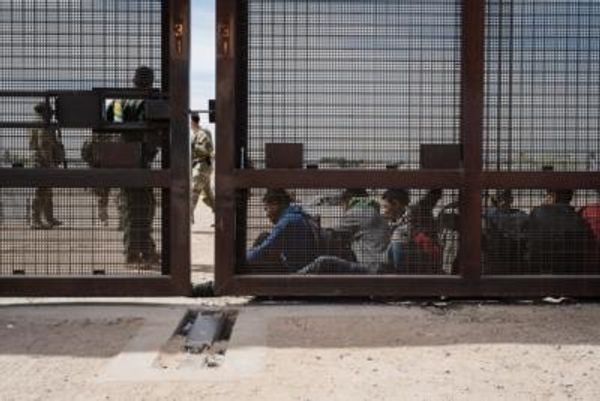
A row has broken out after a humanist organisation accused one of London’s top comprehensive schools of being “socio-economically and religiously segregated.”
Humanists UK said Cardinal Vaughan Memorial School in Holland Park, a Catholic school, is unrepresentative of its local area, with a lower percentage of pupils eligible for free school meals there than elsewhere in Kensington and Chelsea.
It comes after education Secretary Gillian Keegan chose Cardinal Vaughan as the place to launch her faith school reforms this month.
Under current rules oversubscribed free schools can only select half their pupils based on faith, but Ms Keegan announced plans to lift the 50 per cent cap.
Andrew Copson, chief executive of Humanists UK said: “By making her announcement at one of the most socio-economically and religiously segregated schools in the country, the Education Secretary couldn’t have more vividly demonstrated the socially destructive consequences of her flawed policy if she had tried.”
In a statement, Humanists UK also accused the school of having “highly complex admissions arrangements”, with “hard to navigate provisions”, which have resulted in a much lower percentage of pupils eligible for free school meals (11.7 per cent) than other mainstream secondary schools in Kensington and Chelsea (33 per cent).
But headteacher Paul Stubbings told the Standard: “We at Cardinal Vaughan do not recognise this characterisation of our community as socially segregated.
“That would come as news to the 73 per cent of pupils who are not White British, to the 41 per cent whose first language is not English, and to the 4.1 per cent of pupils who have Education, Health and Care Plans (as opposed to a national average of 2.5 per cent).”
He added that the school is also proud of the fact that its average ‘attainment 8’ score, which measures pupils’ progress in eight GCSE subjects, for disadvantaged boys in 2023 exceeded that of all pupils in England.
He said the school’s admissions arrangements are published on its website, adding: “They look pretty clear to me. Certainly, the Office of the Schools Adjudicator has no problem with them.
“‘Highly complex’ is a value judgement and another mischaracterisation.
“I wouldn’t call them ‘highly complex’; I’d call them highly short.”
Headteachers have also criticised the government plans to remove the cap on faith schools which currently limits the number of pupils they can select based on their religion.
School leaders said the move is “unnecessary and potentially retrograde” while other campaigners said it would increase religious and racial segregation in schools.
If the cap is removed, oversubscribed faith-based free schools will be able to select up to 100 per cent of their intake based on pupils’ religious belief.
The Catholic Education Service has argued that the 50 per cent cap effectively banned the opening of any new Catholic free schools because turning away Catholic pupils would be against canon law.
Ministers hope that lifting the cap on faith-based admissions, which applies to new faith free schools in England, will create more school places for pupils.
The Department for Education is also proposing to create faith-based academies for children with special educational needs and disabilities.
Education Secretary Gillian Keegan, who attended a Catholic school, said: “Faith groups run some of the best schools in the country, including in some of the most disadvantaged areas, and it’s absolutely right we support them to unleash that potential even further - including through the creation of the first ever faith academies for children with special educational needs.”
A spokeswoman for the Department for Education said the school admissions code would continue to require faith school admissions “to be fair, clear and objective so no child should be unfairly disadvantaged”.
Mr Stubbings said the 11.7 per cent figure for free school meals, quoted by Humanists UK, refers to its large sixth form, whereas the figure for years 7 to 11 is 16.7 per cent.







